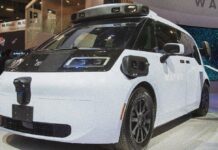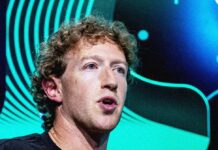“Jeff Bezos has really raised the ire for many members of Congress and Americans,” said Dipayan Ghosh, a fellow at the Shorenstein Center on Media, Politics and Public Policy at the Harvard Kennedy School.
Lawmakers on the panel have questioned whether Amazon lied to investigators about its business practices.
Company executives previously told lawmakers that it didn’t leverage data from third-party sellers on its platforms to decide whether to launch competing products — a position at odds with recent news reports. Amazon declined to comment for this article.
The company’s critics are ready for fireworks. “Lawmakers are finally beginning to scrutinize the extraordinary power that Jeff Bezos has amassed,” said Stacy Mitchell, co-director of the Institute for Local Self-Reliance and a top critic of the company. “Many American companies, large and small, live in fear because Bezos controls their market access and can simply crush them if he wants to. It’s stunning that Congress hasn’t compelled him to answer for that until now.”
Amazon earlier this year launched an internal investigation following the Wall Street Journal’s report. “Like other retailers, we look at sales and store data to provide our customers with the best possible experience,” Amazon said in a written statement. “However, we strictly prohibit our employees from using nonpublic, seller-specific data to determine which private label products to launch.”
It remains to be seen whether an increasingly divided Congress will crack down or meaningfully reform the tech industry.
The hearing broadly marks an opportunity to publicize long-running grievances with the tech industry at a high-profile event, my colleague Tony Romm writes this morning of the big event, which will also feature Apple’s Tim Cook, Facebook’s Mark Zuckerberg and Google’s Sundar Pichai.
Congressional lawmakers for months have been collecting evidence about the tech companies’ practices, demanding documents and emails from the companies and executives themselves. They’ve also heard directly from smaller, competing companies that say the companies have engaged in anticompetitive behavior. PopSockets, the maker of smartphone kickstands, said earlier this year that the e-commerce giant’s policies made it difficult to sell their products on their terms and prices.
“The most important thing is for the subcommittee to get to the bottom of questions that Amazon has been trying to dodge throughout this investigation,” Mitchell said. “Amazon’s stonewalled on supplying requested documents. It’s offered vague and incomplete responses to written questions.”
“This hearing is a turning point,” Mitchell said. “I hope what we’ll see is that lawmakers are no longer going to be taking a subservient posture toward Amazon.”
But Bezos is no neophyte to Washington.
Amazon is valued at roughly $1.5 trillion, and Bezos’s net worth is about $179 billion, according to the Bloomberg Billionaires Index. That’s nearly double that of Zuckerberg, the next richest executive appearing.
Even though he hasn’t testified before, Bezos is no stranger to this town. In addition to his ownership of The Post, he purchased one of the largest homes in Washington’s high-end Kalorama neighborhood. Before the pandemic, he hosted major parties there with top Washington officials, including members of the Trump administration and family.
His company has also decided to locate its long-anticipated second headquarters just across the river, in Northern Virginia. It’s very likely that these social and business ties will also come under scrutiny.
It remains to be seen what Bezos’s style will be under the congressional spotlight.
Zuckerberg, Pichai and Cook have all testified in front of Congress before.
Zuckerberg has become a frequent fixture on Capitol Hill in recent years, testifying on everything from the company’s plans to push into cryptocurrency to a massive data privacy scandal, known as Cambridge Analytica. Lawmakers grilled Pichai, now the chief executive of Google’s parent company Alphabet, in 2018 on a wide range of grievances, ranging from privacy to national security concerns. While Apple has tried to avoid much of the techlash directed at other companies in the wake of Russian interference in the 2016 election, Cook previously testified in 2013 on the company’s tax policies.
Our top tabs
Google will work from home at least until July 2021.
The announcement will probably pressure other technology companies to reevaluate timelines, after previously saying employees could return as soon as January. Pichai made the decision himself last week, following discussion with an internal group of top executives.
The company notified a handful of Google employees about the decision later in the week. “Pichai was swayed in part by sympathy for employees with families to plan for uncertain school years that may involve at-home instruction, depending on geography,” Rob writes. The decision applies to employees in most of its major offices, including the headquarters of Mountain View, Calif., and other offices in the U.S., U.K., India, Brazil and others.
TikTok will remove tags related to the QAnon conspiracy theory from its search feature.
Videos containing the tags will remain on the platform, however, BBC News reports. Videos touting the conspiracy theory will also still show up in a user’s feed if the app’s algorithm directs them to the content.
The move responds to a shift from major platforms in dealing with the conspiracy theory, which alleges that “deep state” actors are seeking to undermine President Trump and are involved in child trafficking. Twitter banned 7,000 related accounts and put limitations on 150,000 others last week, citing an uptick in coordinated harassment.
While TikTok skews toward a younger audience, the conspiracy theory started to take a foothold on the app in recent months. Videos promoting a baseless conspiracy theory alleging retailer Wayfair of shipping children in storage cabinets rapidly spread across the platform earlier this month, racking up millions of views. QAnon supporters, including three conservative congressional candidates, helped amplify the conspiracy theory.
Pro-Trump Sinclair TV stations put on hold plans to air an interview featuring the viral “Plandemic” video star.
In the interview, Judy Mikovits, a former medical researcher featured in the viral coronavirus conspiracy theory video, accuses Anthony S. Fauci of manufacturing the coronavirus and shipping it to Wuhan, China. Mikovits also alleges that Trump has proof of China’s involvement in creating the virus. Neither of the claims is supported by any evidence.
“We will spend the coming days bringing together other viewpoints and provide additional context,” Sinclair shared in a statement after pulling the video. “All stations have been notified not to air this and will instead be re-airing last week’s episode in its place.”
The show’s host, Eric Bolling, echoed the statement and says he has invited Fauci to appear on his show.
An Instagram bug sparked user concerns that the app was spying on them.
A new version of the app set off an Apple notification that users’ cameras were on when they were not taking a video or photo, the Verge reports.
The company said the notification was the result of a faulty piece of code. “We only access your camera when you tell us to — for example when you swipe from Feed to Camera. We found and are fixing a bug in iOS 14 Beta that mistakenly indicates that some people are using the camera when they aren’t,” a representative told the Verge. “We do not access your camera in those instances, and no content is recorded.”
This isn’t the first time that Apple’s new features, which are designed to give users more insight into how apps are using their phones, have sparked a privacy concern. Another feature flagged to users earlier this month that TikTok’s app was accessing text their phones copied, including passwords. TikTok said the access was used to prevent spam but that it would discontinue the feature.
Rant and rave
The New York Times’s columnist Maureen Dowd sat down with Tesla chief executive and heavy Twitter user Elon Musk. The interview sparked mixed reactions on Twitter.
Some readers thought the piece was cringeworthy, to say the least. The Intercept’s Ryan Tate:
And then there was this part…
Silicon Valley peers had a more favorable response. Salesforce CEO Marc Benioff:
And if you thought tech leaders had run out of “Lord of the Rings” comparisons…
Trending
Daybook
- The Senate Homeland Security regulatory affairs subcommittee will hold a hearing to examine modernizing telework, focusing on a review of private sector telework policies during the COVID-19 pandemic Tuesday at 2:30 p.m.
- The Senate Commerce Committee will hold a hearing on The PACT Act and Section 230 on Tuesday at 10 a.m.
- The House Judiciary will hold a hearing on online platforms and market power with testimony from the CEOs of Amazon, Apple, Facebook and Google on Wednesday at noon.
- RightsCon will take place online on July 27-31.
Before you log off
We’ve reached a new coronavirus low:








